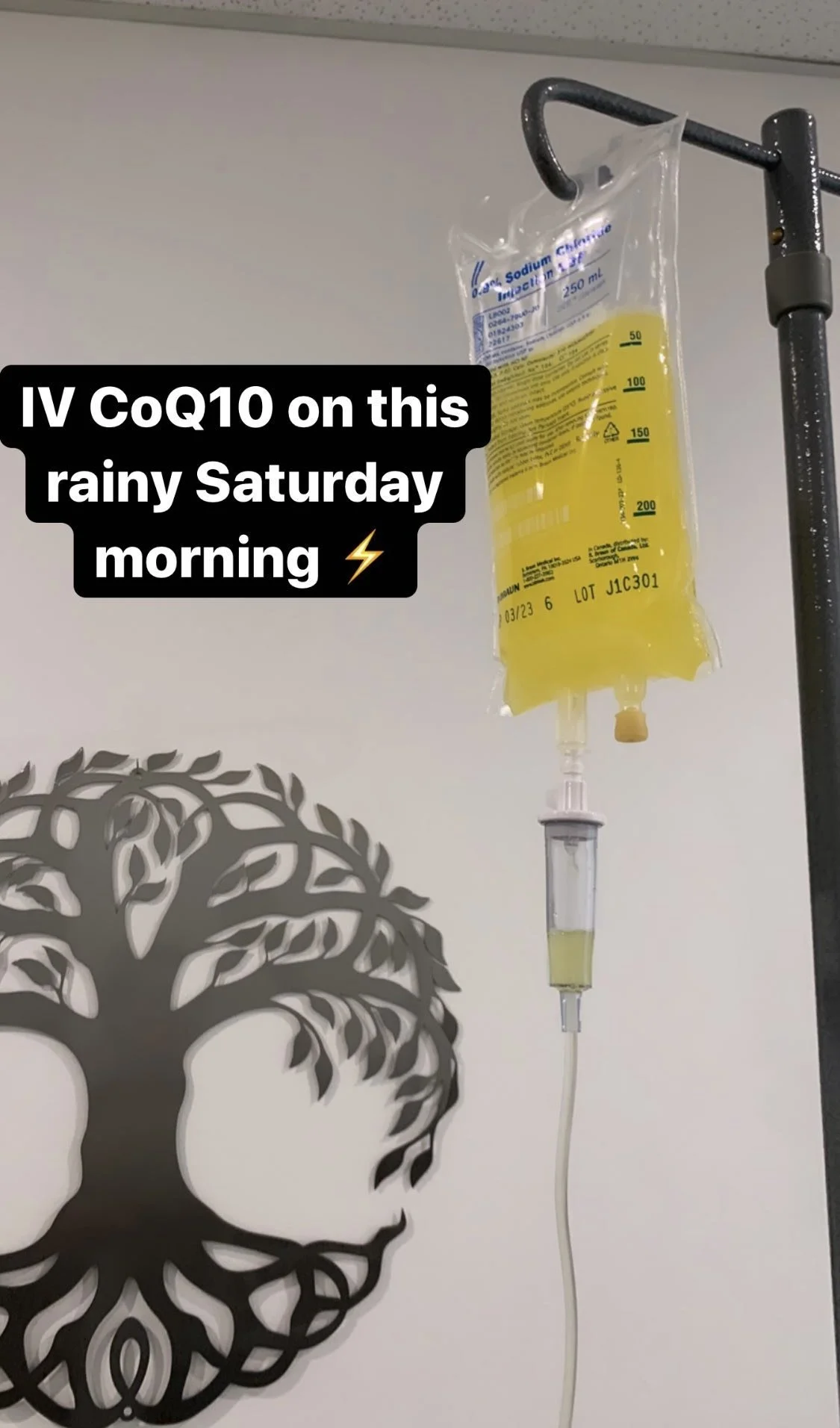CoQ10
CoQ10
Coenzyme Q10 is a naturally occurring compound found throughout the human body. Although similar in structure to some vitamins, CoQ10 is technically not a vitamin because it is synthesized in the body, whereas vitamins must be obtained from one’s diet.
Cells use CoQ10 for growth, maintenance, and energy production. Cellular structures called mitochondria utilize CoQ10 to convert food into energy.
Because of its necessity in energy production, CoQ10 is predominantly found in tissues with high energy requirements or metabolic activity like the heart, liver, kidney, and pancreas. However, CoQ10 is synthesized in almost every cell of the body. Normally, the body can maintain CoQ10 levels, but some may require extra supplementation.
Treatment & Benefits
Improves athletic performance
Reduces inflammation
Anti-inflammatory
May lower blood pressure
Migraine prevention
Slows Alzheimer’s disease
CoQ10 FAQS
-
Studies have shown that Coenzyme Q10 levels decrease as we age, causing an imbalance in free radicals and antioxidants.
Low blood levels of CoQ10 have been observed in patients with:
Congestive heart failure
Atherosclerosis and other cardiovascular diseases
Type 2 diabetes
Neurodegenerative diseases, including Parkinson’s disease
High blood pressure
Inflammatory conditions
Certain types of cancer like breast cancer and melanoma
-
Coenzyme Q10 plays a central role in mitochondrial oxidative phosphorylation and the production of adenosine triphosphate (ATP). It also functions as an antioxidant in cell membranes and lipoproteins.
Generates cell energy
Reduces lipid peroxidation
Lowers cholesterol levels
Improves the contraction of heart muscles
Protects the heart tissue from ischemia
Normalizes blood pressure (systolic, diastolic)
Improves blood sugar regulation
Supports insulin function
Reduces oxidative stress
Supports the immune system (increases phagocyte activity of macrophages)
Delays the processes of degenerative diseases such as Parkinson’s and Alzheimer’s
-
Our CoQ10 IV costs $249. The dose is 150mg.



